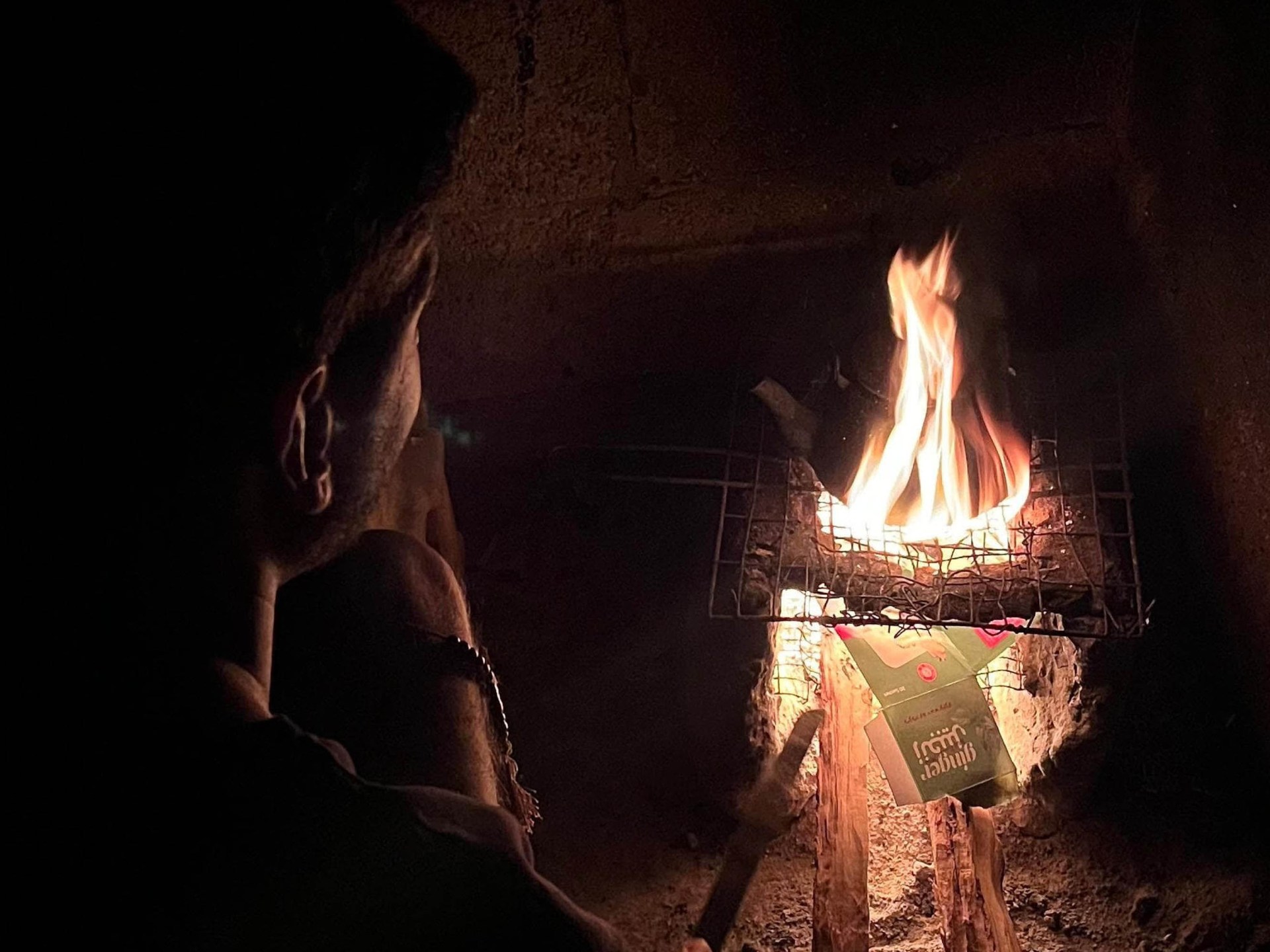Fear and anxiety are audible in Gaza. We are familiar with the cries of people trapped beneath rubble, the screams of ambulances screaming through narrow streets, the roar of military aircraft, and now the sharp clinking of empty gas cylinders.
We were well aware of the tiny spark a gas stove burner ignited, which indicated a hot meal or cup of tea was on its way to us. The hollow clang of emptiness now replaces that sound, which has since vanished.
In the middle of Ramadan, we used our final drop of cooking gas. We turned to firewood, just like all other Gazan families. We are unable to even make a cup of tea for Suhoor as of today, as my mother used to say.
Because a drone or quadcopter could set off a fire or have even a flash of light at night, which would cause an airstrike or a barrage of bullets. We are not aware of the significance of light at night, but we are aware that we have no authority to ask.
So we saved the fire for iftar and ate cold food for Suhoor.
After bakeries shut down last month as a result of a gas shortage, everyone in our family relyed on fire. To bake loaves of bread, many people constructed makeshift clay ovens or fires between tents and alleyways.
Not the smoke of missiles that kills us slowly, but the thick, black smoke that hangs high in the air.
We wake up each morning with a deep, persistent choking cough that rattles through our chests rather than a passing cough.
Then, my brother and I head toward the neighborhood where a cart carrying wood is being sold. He finds it in destroyed homes and schools, fallen trees, broken furniture, and broken furniture.
We carry whatever our weak bodies can with us to the next suffering, which is wood burning. It’s challenging. It necessitates hours of dusting up and breaking wood. Despite having shortness of breath, our father insists on helping. His stubbornness has sparked daily arguments, especially between him and my brother.
Our throats sting as we light the fire, and our eyes turn red as a result. The coughing gets worse.
Firewood has soared in price recently. We would have paid a dollar for eight kilograms before the war, but now you can get one kilogram for less.
Many people have been forced to cut down their own trees due to poverty. Our neighborhood’s greenery has almost vanished. Many of our neighbors have begun removing the trees they planted in their yards. Even our olive tree, which we had never dared touch when we were young, has since started to produce less olives and blossoms because we were concerned that it would disturb it.
Anything that will catch fire has been burned by families without any trees to chop. However, burning these substances causes toxic fumes to enter the food they cook and poison the air they breathe. Every bite is clung to, putting a health risk on each bite.
This smoke can keep people sick for a long time, spread chronic illnesses, and even spread life-threatening diseases like cancer. What choice do people have, however? There is no food without fire.
The kitchen has evolved from a place of comfort and family to become a toxic environment. Our lungs and eyes are now consumed by the fire that once provided warmth. Can’t be called soup from lentils, bread from flour that has been infected, or flour that has been mixed with sand. Fear, pain, and exhaustion have replaced the joy of cooking food.
The rituals that unite families have been destroyed by this lack of cooking gas, which goes beyond limiting our access to food. Meals are no longer just a time to gather and enjoy family time; they are a time to endure. a time to cough A time to pity the fire that caused today’s tragedy.
We will pass away in a slower pace: quiet, toxic, and just as cruel if a bomb doesn’t kill us.
Today’s Gaza is this.
A place where surviving means breathing poison just to wake up to a cup of tea.
a place where gold and firewood are now more expensive.
a place where even the simplest act of eating has been harmed.
We still burn, though.
We sneeze.
We continue.
What other options are there?
Source: Aljazeera

Leave a Reply